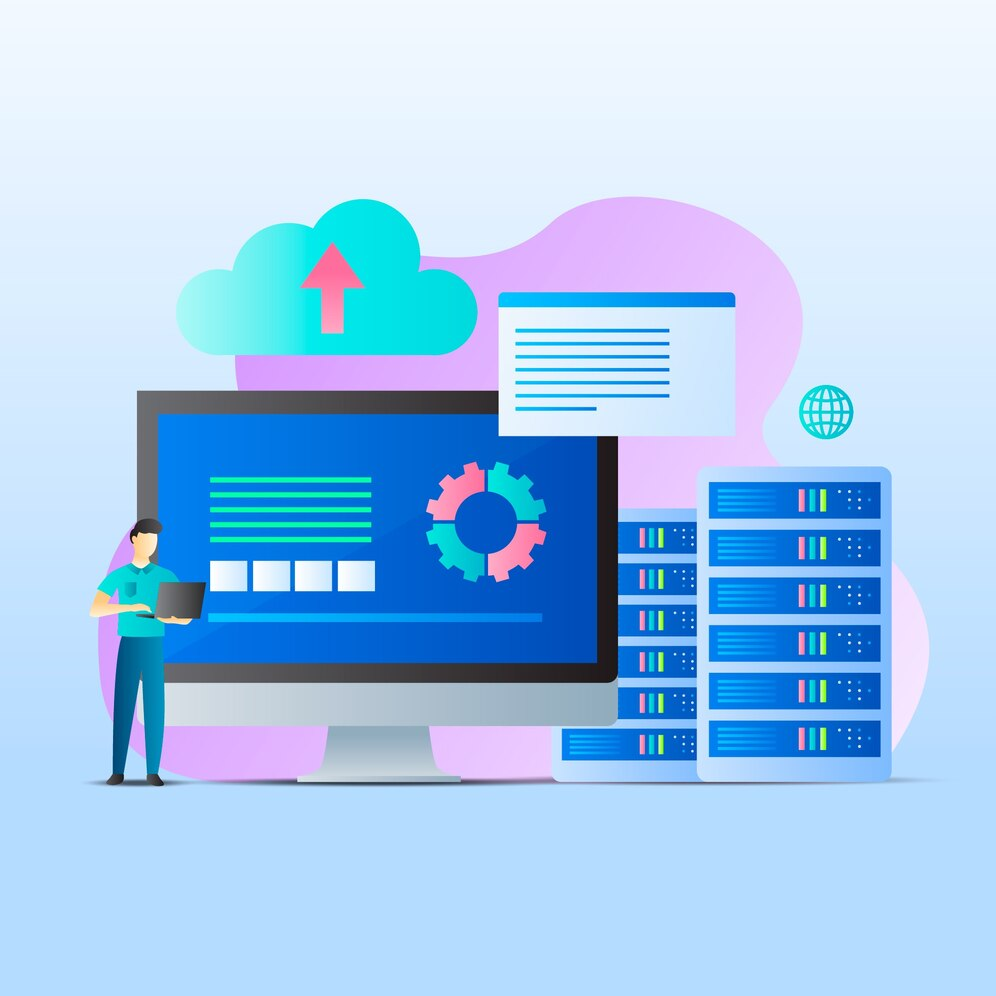Hyvä Theme is Now Open Source: What This Means for Magento Community - Mageplaza
Hyvä is now Open Source and free. Discover what changed, what remains commercial, how it impacts the Magento ecosystem, and how to maximize its full potential.

Magento stands as a leading open-source eCommerce platform renowned for its adaptability and user-friendly interface. Entrepreneurs seeking to utilize Magento must find hosting services tailored to their business requirements.
Opting for an appropriate Magento hosting solution can significantly boost website performance and security, mitigating risks such as server downtime. Statistics indicated that as page load time increases from 1 second to 3 seconds, the probability of bounce rises by 32%, which ensures swift and seamless user experiences is paramount.
Understanding the intricacies of Magento hosting software, including aspects such as server stack, security measures, scalability, and more, can significantly impact the success of your online store. This article delves into the world of Magento hosting software, providing insights into key considerations for selecting the right solution and strategies for optimization evaluation.
Magento hosting software offers server infrastructure, advanced security features, and tools for optimizing performance, guaranteeing a safe and high-performing environment for your online store.

Server Stack
The software stack necessary for hosting and operating Magento comprises:
Hardware Resources
Evaluate the available hardware resources, encompassing processing power, memory (RAM), and storage capacity. Verify that the provider offers sufficient resources to manage the expected traffic and data requirements of your store.
Consider the inclusion of CDN integration in your hosting package. A CDN disperses website content across servers located in different geographic regions, resulting in improved loading times for users worldwide. By utilizing a CDN, you can achieve the following benefits:
Accelerated Loading Times: CDNs store website assets such as images and code on servers distributed globally, enabling them to be served from the nearest server. This minimizes data travel distance, leading to faster page loading.
Alleviated Server Load: CDNs handle the delivery of content, reducing the workload on your original server. This enhances website performance and stability, particularly for audiences accessing your site from various locations around the world.
Management of Traffic Spikes: CDNs efficiently manage sudden increases in website traffic by distributing the load across their network, thereby preventing website slowdowns during peak periods.
SEO Advantages: Improved loading times, which are considered by search engines, can potentially enhance your website’s ranking in search results.
Enhanced Security: Many CDNs offer security features such as DDoS protection, safeguarding your website against malicious attacks.
Data-Driven Optimization: CDNs provide monitoring tools that offer valuable insights into server health, uptime, traffic patterns, and user behavior. This data allows you to:
Identify Resource Needs: Monitor server metrics like CPU and memory usage to determine if your hosting plan adequately meets your website’s requirements. If resource usage consistently exceeds capacity, upgrading or optimizing your application may be necessary.
Proactively Address Performance Issues: By identifying performance issues proactively through monitoring, you can address them before they negatively impact your customers’ experience.
E-commerce platforms manage sensitive customer information. Strong security measures are crucial to safeguard your store and your customers’ data. Seek out providers that offer:
As your business expands, your e-commerce platform will encounter higher volumes of traffic and greater data requirements. Opting for a scalable solution enables you to effortlessly increase resources when necessary. Investigate options for smooth vertical or horizontal scaling to accommodate growth effectively.
Consider providers with integrated monitoring tools offering insights on server health, website uptime, traffic patterns, and user behavior.
Maximize Performance: Monitor server metrics like CPU usage, memory consumption, and disk I/O to identify resource bottlenecks early. High usage indicates the need for potential upgrades or optimizations to maintain website performance.
Ensure Availability: Track website uptime to minimize downtime and avoid potential revenue loss due to inaccessibility.
Optimize Resources: Analyze traffic patterns to allocate resources effectively and target marketing efforts toward the right audience.
Enhance User Experience: Gain insights into user behavior such as page popularity and click-through rates to refine website design and functionality for a better shopping experience.
Informed Decisions: Utilize monitoring data for proactive resource allocation and website optimization, ensuring efficient operation and superior customer experience.
Identify Growth Opportunities: Analyze user behavior to identify areas for improvement and enhance customer engagement. Integration with analytics solutions like Google Analytics provides deeper insights for strategic decision-making.
Data Privacy Regulations: Adhere to data privacy regulations like GDPR and CCPA, ensuring compliance and obtaining user consent where necessary.
Data Accuracy: Recognize that analytics tools rely on data collected through various methods, and take into account potential inaccuracies caused by user privacy settings.
Data Interpretation: Analyze data trends and user behavior patterns to derive actionable insights for business growth and optimization.
Unexpected occurrences can interrupt website functions. Seek automated backups scheduled at consistent intervals and swift restoration capabilities when necessary.
Examine the support offerings of the provider, encompassing phone, email, chat, and knowledge base resources. Prioritize providers with proficiency in troubleshooting Magento-specific issues.
PHP Version
PHP serves as the scripting language powering the dynamic functionalities of your Magento store. Utilizing the most recent stable iteration of PHP provides several benefits:
Performance Enhancement: Newer PHP iterations contribute to quicker page load times for your online store.
Improved Security: New PHP releases address security vulnerabilities, ensuring that your Magento store remains protected against potential attacks.
Varnish Cache
Varnish Cache functions as a potent caching tool, enhancing website loading times. Serving as a temporary storage layer between your Magento store and visitors, it stores frequently accessed static content such as images and HTML pages in memory.
Upon a returning visitor’s arrival, Varnish directly serves cached content, bypassing the need to retrieve it from the server each time. This reduction in page load times fosters a more positive user experience.
Redis
Redis serves as an advanced key-value store adept at caching dynamic data, including frequently accessed database queries, shopping cart details, and session data. By storing such data in memory, Redis alleviates the load on your database server, leading to faster page load times and heightened responsiveness.

Although SEO optimization mainly focuses on on-page content strategies, certain hosting providers offer tools that can indirectly enhance SEO. Seek options with features such as server-side caching and clean URL structures, as they can positively influence search engine crawling and indexing processes.
Security features such as SSL certificates and firewalls are vital for ensuring the safety of an online store. Additionally, consider providers that offer security tools like:
Web Application Firewalls (WAFs): These firewalls provide an additional layer of security to safeguard websites against vulnerabilities and malware attacks. WAFs analyze incoming traffic and block any suspicious requests that may attempt to inject malicious code or exploit security weaknesses in your store.
DDoS (Distributed Denial-of-Service) Mitigation: DDoS attacks flood a website with malicious traffic, making it inaccessible to legitimate users. DDoS mitigation services can help absorb such attacks and maintain website uptime.
Next-gen backup solutions provide automated efficiency for Magento store operators. These solutions guarantee data integrity through features such as incremental backups and version control.
Disaster recovery plans tackle risks such as hardware malfunctions and cyber assaults. Snapshot capabilities and offsite backup choices like cloud storage bolster data security. Assessing your requirements concerning data volume, recovery time, and financial resources aids in selecting the most suitable backup and disaster recovery solution.
Access to real-time insights on server health metrics empowers informed decision-making. Customizable dashboards, alerts, and visualization capabilities facilitate performance optimization and future planning.
Several tools aid in identifying and promptly addressing performance issues:
Google Analytics Google Analytics provides insights into website traffic, user behavior, and conversions. Tracking metrics like page views, bounce rates, and conversion rates helps make data-driven decisions and optimize marketing strategies.
New Relic New Relic offers application performance monitoring (APM) solutions providing real-time insights. Detailed metrics on server health, application response times, and database queries aid in identifying performance bottlenecks and enhancing user experience.
Grafana Grafana is an open-source analytics and visualization platform enabling the creation of customizable dashboards for monitoring and analyzing data. With Grafana, server metrics and application performance data can be visualized in real-time using its flexible query language and extensive plugin ecosystem.
Developer-friendly environments aim to foster conducive settings for Magento developers to operate efficiently. These environments provide SSH access and Git integration to streamline workflows for Magento sites.
SSH Access: Secure Shell (SSH) access enables developers to securely connect to the hosting server remotely. It facilitates the execution of commands for tasks such as file management, server configuration, and application deployment.
Git Integration: Git, a version control system utilized by developers, manages code changes, supports collaboration, and tracks project history. Hosting with Git integration allows developers to seamlessly integrate projects with Git repositories, facilitating efficient version control, code collaboration, and deployment workflows.
Staging Environments: Staging environments, which mirror the production environment, enable developers to test changes, updates, and new features before deployment. Developer-friendly hosting solutions often offer built-in staging environments or easy setup options, empowering developers to test Magento software configurations, extensions, and customizations effectively.
Dependable customer support is crucial for minimizing downtime, enhancing customer satisfaction, and facilitating problem resolution. When assessing customer support, consider the following aspects of Service Level Agreements (SLAs):
Uptime Guarantees: SLAs outline the guaranteed uptime percentage, representing the minimum time your website is expected to be operational. Prioritize providers with high uptime guarantees (99.9% or above) to ensure consistent website availability for customers.
Issue Resolution Timeframes: SLAs may specify timeframes for resolving different types of support tickets. Look for clear definitions of priority levels and corresponding resolution timeframes to ensure timely problem resolution.
Compensation for Downtime: Some SLAs offer financial compensation if downtime exceeds specified thresholds. This incentivizes hosting providers to maintain high uptime standards and provides recourse in case of extended outages.
Choose providers offering 24/7 support across multiple channels with rapid response times to ensure prompt assistance and resolution of issues.
Look for hosting options that offer server-side optimizations to enhance loading times. Additionally, consider tools for mobile responsiveness and features aimed at boosting user engagement for data-driven optimization. These functionalities can lead to improved conversion rates, reduced bounce rates, and increased customer satisfaction.
1. What is the key difference between regular web hosting and Magento hosting?
Traditional website hosting plans might not be tailored to meet the specialized requirements of a Magento store. Magento hosting is designed with features such as server-side caching, fine-tuned databases, and pre-set security measures. This hosting solution allows you to concentrate on your business operations rather than dealing with server administration tasks.
2. What are the pros and cons of a managed Magento hosting service?
Pros:
Cons:
3. Does it require to use a dedicated server for my Magento store?
Dedicated servers provide the utmost control and resource allocation. Nevertheless, shared hosting or VPS plans could suffice for smaller stores.
4. What are the key considerations when choosing the best Magento web hosting solution providers?
Selecting the optimal Magento hosting providers entails assessing:
5. What should I consider when choosing a Magento Hosting plan?
Magento enables extensive store customization, but ensuring smooth operation requires specialized hosting. Standard ecommerce providers may lack the resources or optimized environment Magento demands. Consider these factors when selecting a Magento Hosting plan:
Understanding key factors such as server infrastructure, scalability, and security measures ensures you select a hosting plan that meets your business needs effectively. By prioritizing these considerations, you can create a reliable and optimized platform for your e-commerce ventures.
In short, the right Magento hosting solution is crucial for optimizing performance, security, and user experience. Upgrading PHP, using caching tools, ensuring robust security measures, and prioritizing features like backups and analytics are key. Reliable customer support and features aimed at enhancing user experience further solidify the effectiveness of Magento hosting choices, ensuring a seamless online shopping experience while meeting business needs.